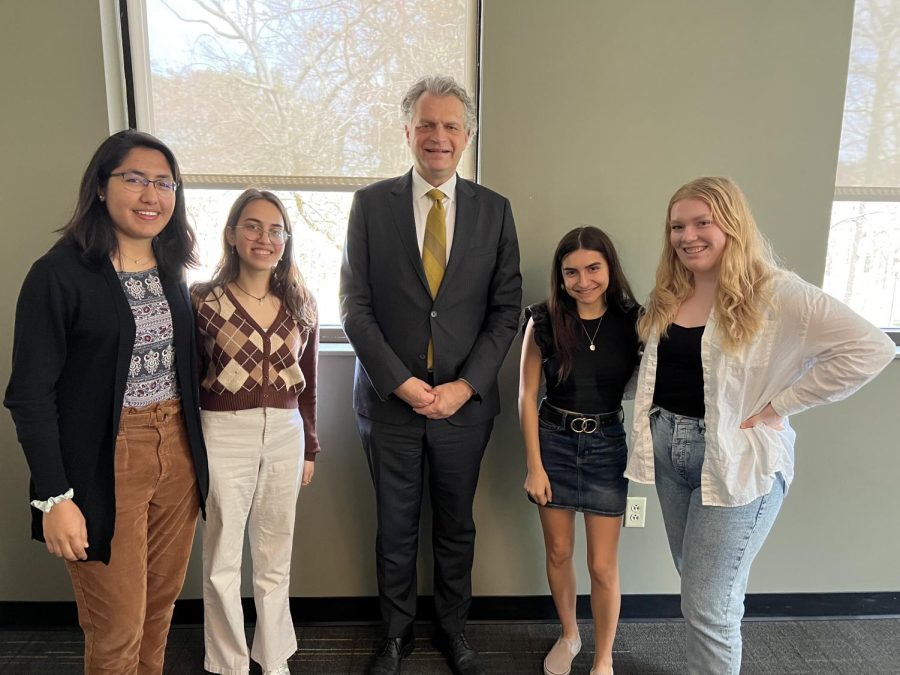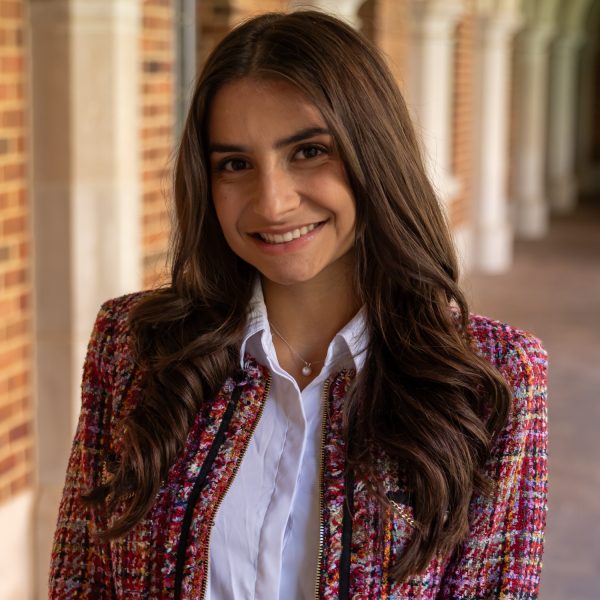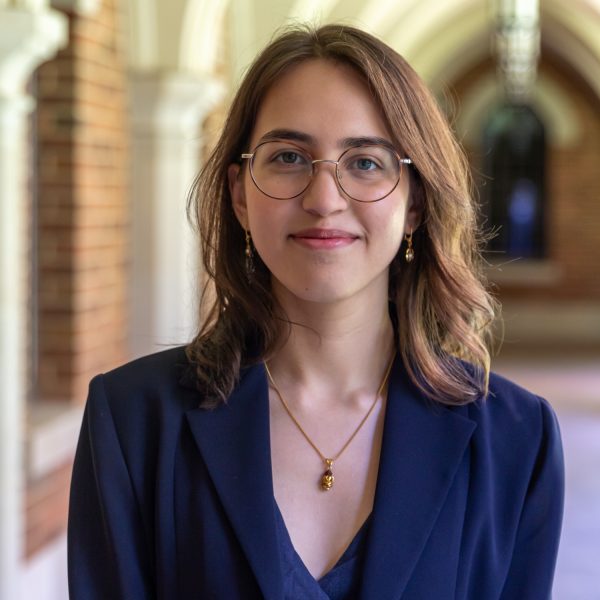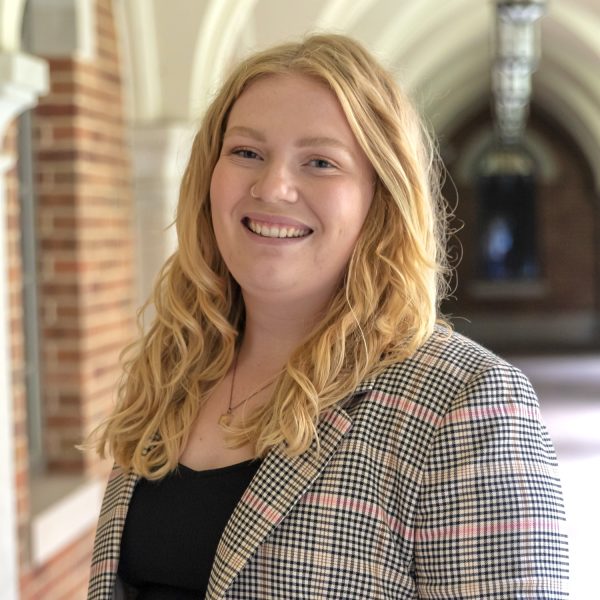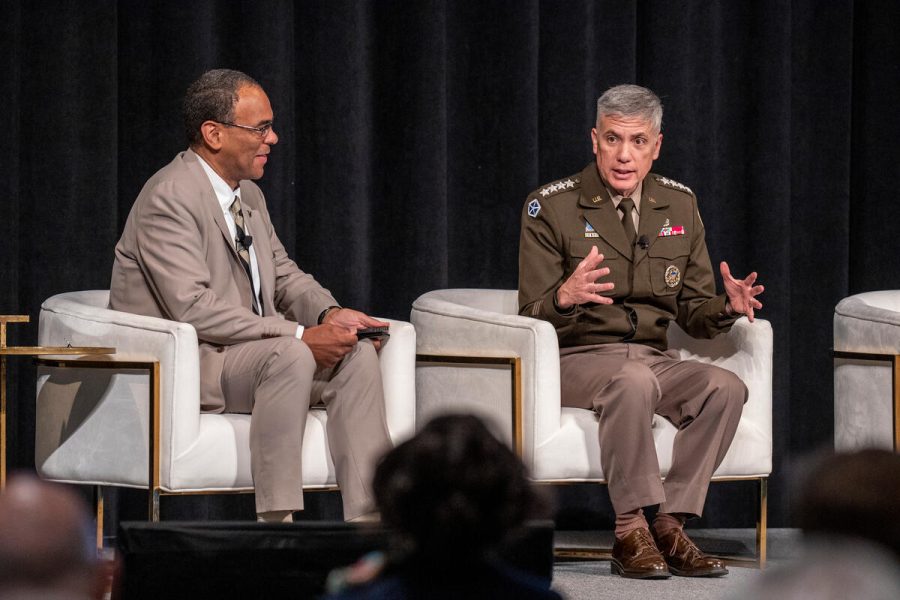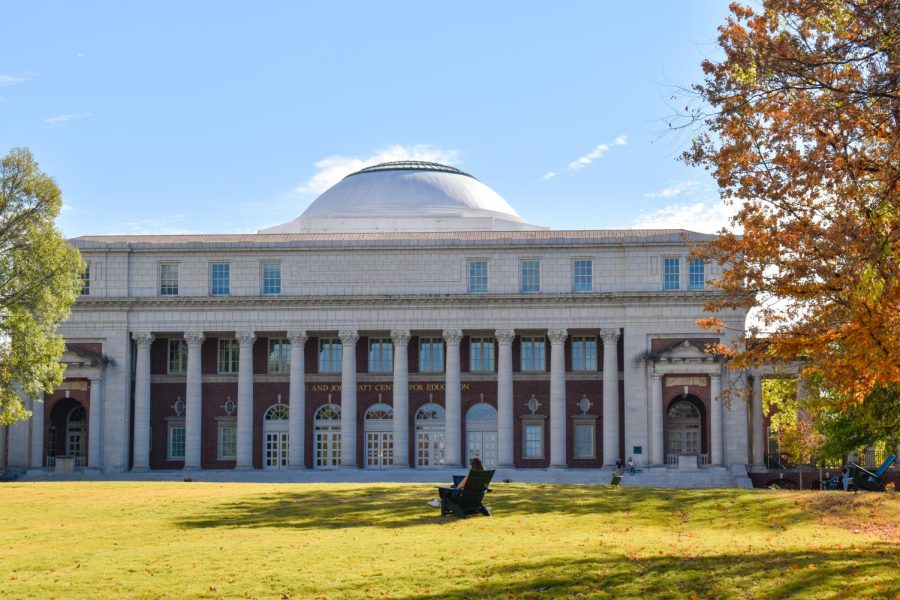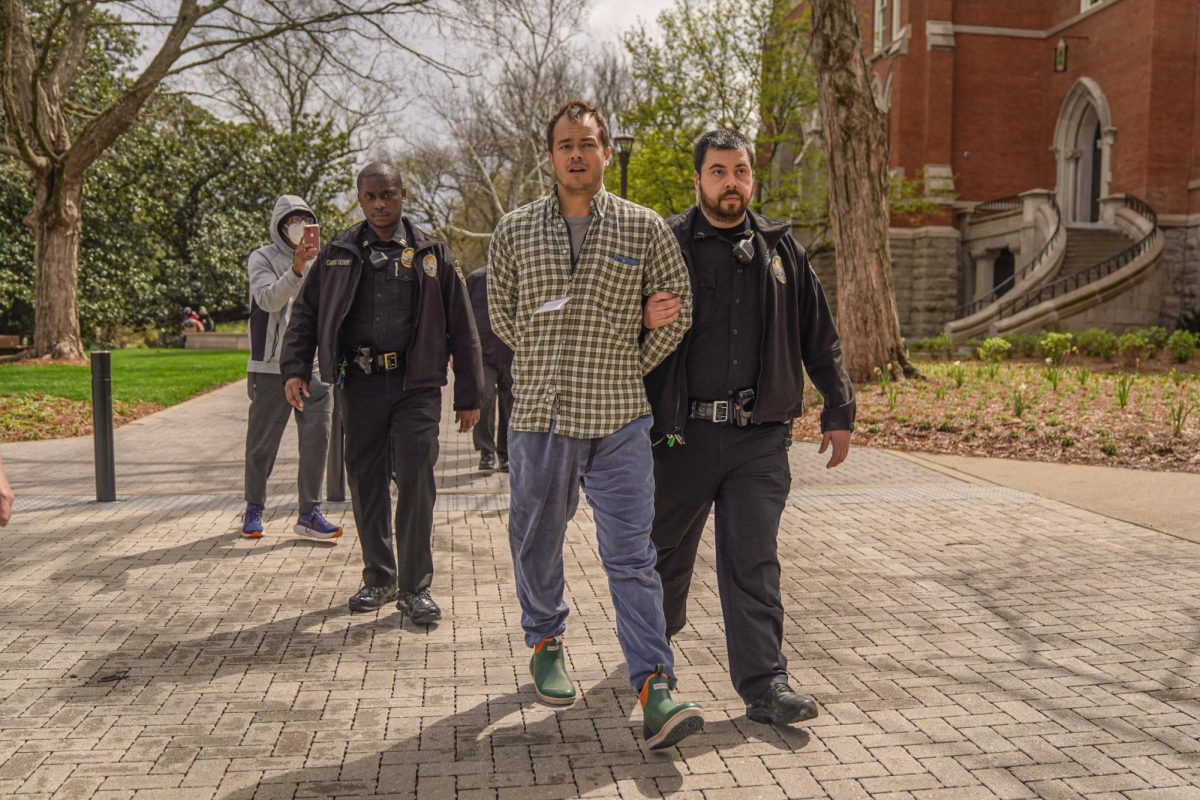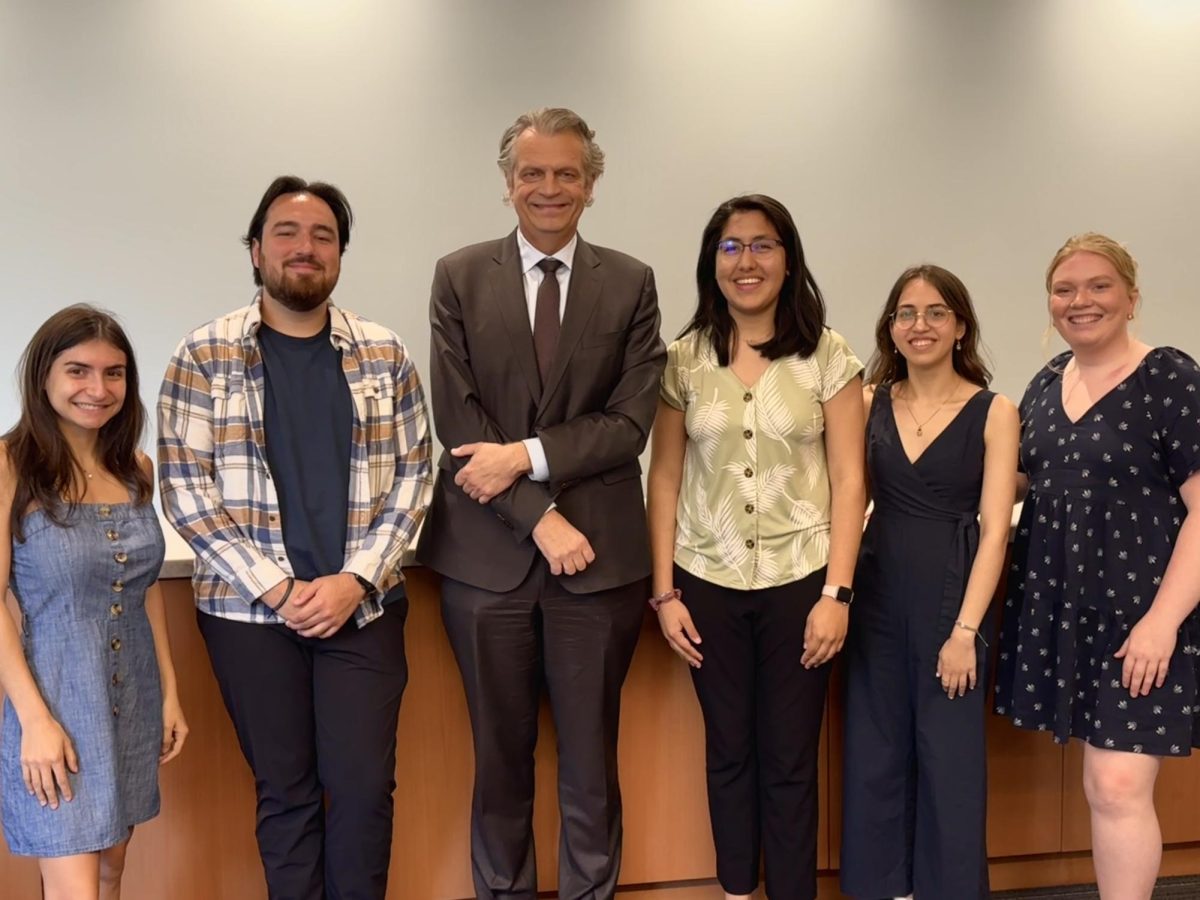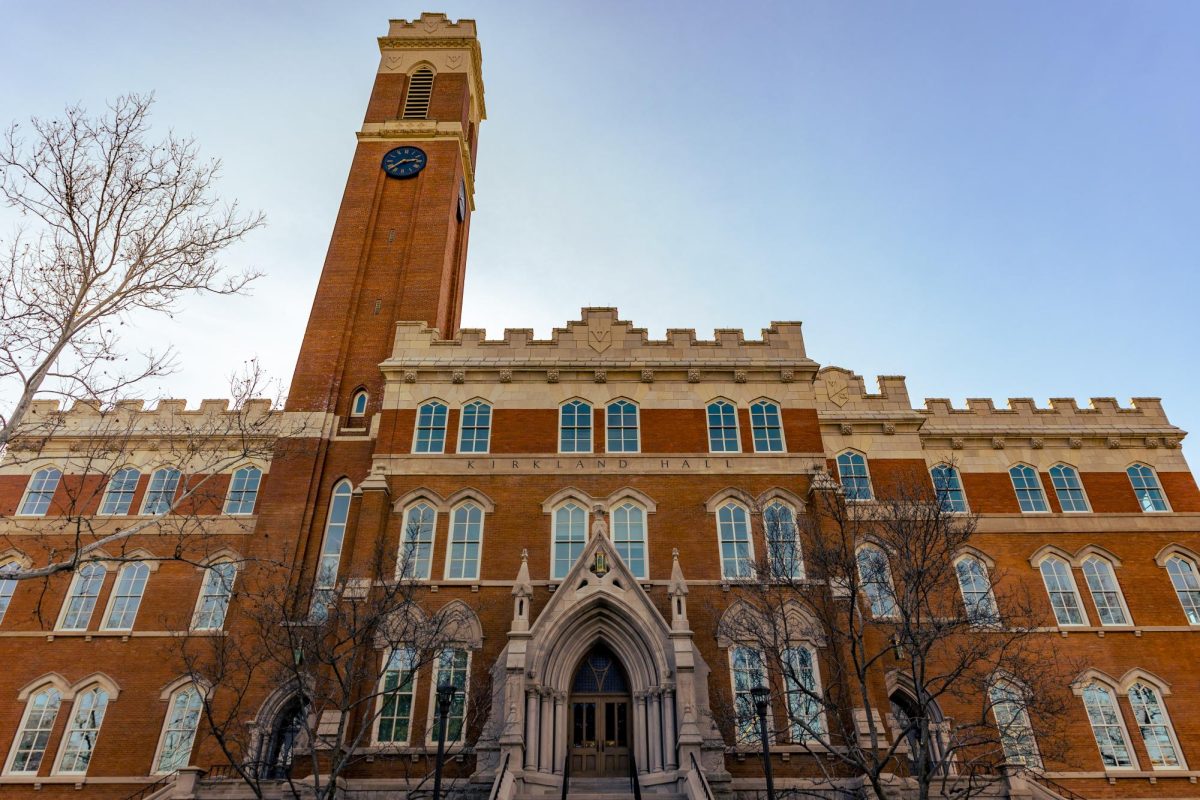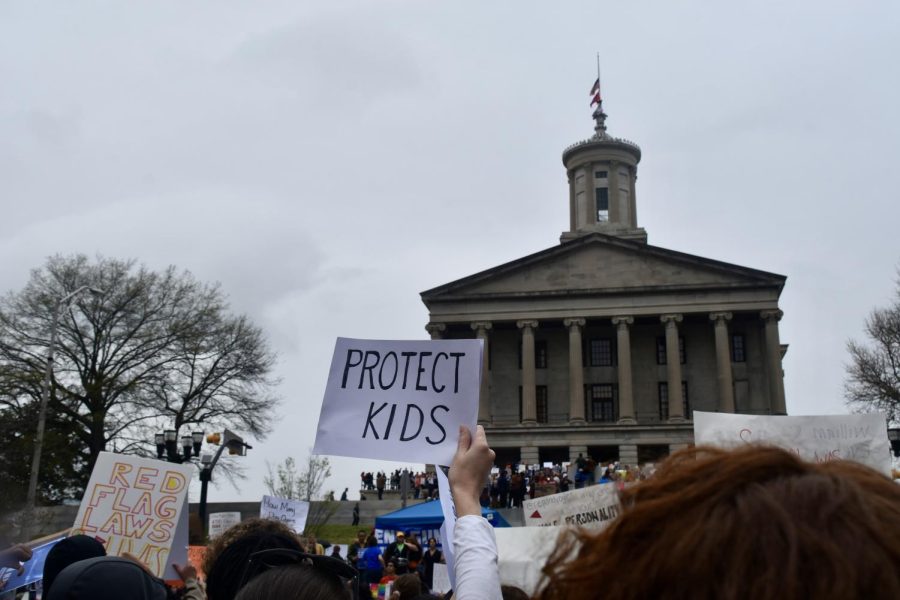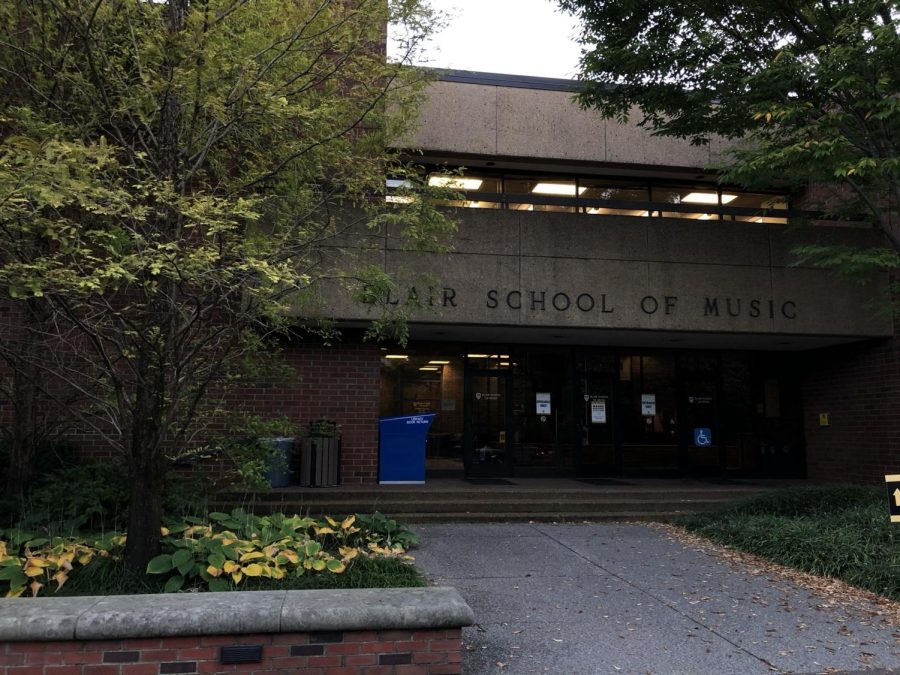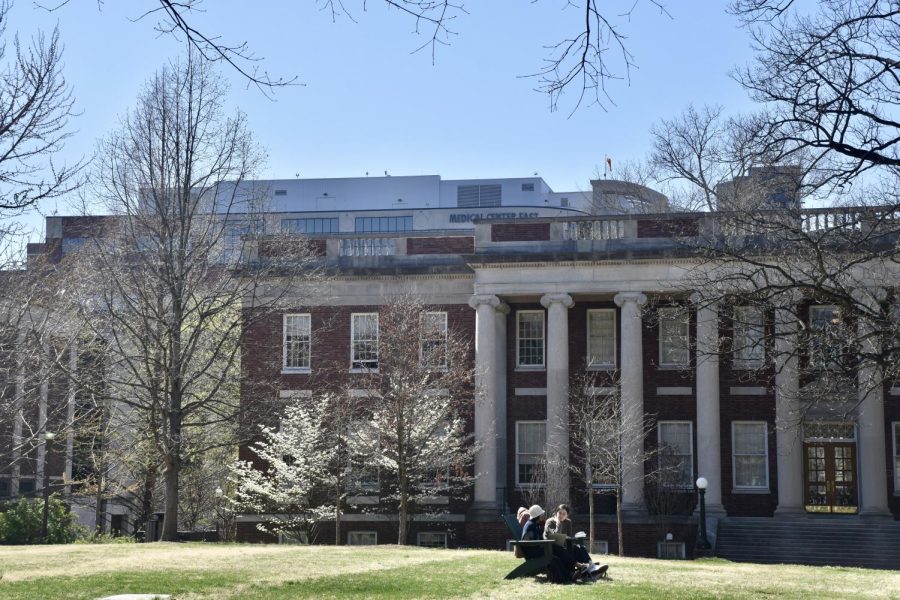As Sesquicentennial Anniversary celebrations begin, Chancellor Daniel Diermeier met with The Hustler to reflect on Vanderbilt’s 150-year history and shed light on the university’s future.
During the Feb. 22 interview, Diermeier discussed the future of residential life at Vanderbilt, AI technology, Vandy United and the university’s collaboration with political figures.
Campus expansions and construction
Vanderbilt Hustler: Is there a timeline for proposed plans to be released for the new residential college that will replace Highland?
Diermeier: We’re working hard at that. The way this works is you go through what the architect has planned for us, and then that plan is discussed with the Board of Trustees. Then you go through competition for an architect. We settled on a phenomenal architecture firm called Foster & Partners. They are one of the leading global architecture firms. They have been on campus repeatedly already.
We already had a couple of workshops with students to make sure that Highland Quad will really be centered on student life. This is very important to us — that the student experience, particularly for sophomores and juniors, is reflected and enhanced by the design of Highland Quad. Once you have that, you turn that into construction plans and so forth. So our plan is to open construction in 2024 and open the residential college in 2027.
You mentioned how some of those processes involve student feedback — how did the university go about choosing which students to kind of involve in those conversations?
Good question. I don’t know. But I do know that we had a couple of workshops to just get input on that. We had a discussion about the desire for study spaces, for communal spaces; a desire to have some ownership over the spaces. All of that is reflected in the design.
Kirkland is also under construction right now. Are you able to share anything about when students can expect that to be completed?
Kirkland needed a lot of work. Kirkland really hadn’t been touched in 25 years. We had repeated water damage in the basement. We had problems with windows, water seepage and even the stability of the floors. So this is a real serious rehab. And that’s why it takes a while. It should be ready by the fall. The facilities are going to be very nice — I think they needed a little bit of a facelift. We want to make it more welcoming and better Vanderbilt’s history.
The university recently acknowledged that in addition to the death that had happened at the worksite at Rothschild College in February 2022, there was also a fatality at the construction site of the Owen Graduate School of Management in July 2021. What are the university’s guidelines for when public statements are made about incidents that happen on campus such as fatalities or incidents in workplaces?
Every one of these cases is different. Whenever we have something like that, it’s a tragedy. Eric Kopstain, who has responsibility for residential life and for construction, is all over this and working with our contractors to make sure that we have the highest possible standards. From a communication point of view, it is really something that would depend on the circumstances. That’s how we handle it.
Can you provide context for the lack of communication surrounding the proposed plans to update Kissam Kitchen, as well as the backtracking of these plans?
From my point of view, whenever we think about Campus Dining, we will always try to assess and reassess our options. Then, we make recommendations that best support our students’ needs. That’s a fluid thing because we want to be adaptable, but a good thing is also to make sure that the lines of communication are open in both ways. Even if plans change, they can have a good dialogue on that and explain to you why this original idea did not work or why it may be delayed or anything like that.
Construction of some facilities related to Vandy United has recently begun. What are your goals for Vandy United?
This really has been a signature initiative over the last couple of years. Our sense was that athletics at Vanderbilt is an integral part of what the university is all about — and we have a particular point of view on how to do it. It’s a great way to build community among our students and among the alumni. We also felt after very careful analysis that the facilities in particular were not at a level where we would put our students in an environment where they could be successful. Also, the fan experience was not what it needed to be. So we went back and made a plan.
The most important thing is to create an environment for our student-athletes where they can succeed and then enhance the fan experience as well. We work with a great architecture firm called Populous. They specialize in stadiums and they’re very creative. That’s what makes Vanderbilt Athletics facilities great but also present challenges. They’re so compact, right? They’re all connected. I love that the baseball stadium is really connected to the football stadium and then you walk across and you can see the tennis facilities. It’s like a little village, but that also creates challenges from the architectural side. What was beautiful to see is how the architects turned these challenges into opportunities.
The first thing we’re building right now, on the north endzone, is a basketball operations facility. It provides exactly the kind of environment that they need to succeed on and off the court. It’s adjacent to the football stadium, which allows you to have additional abilities for hospitality and things like that. So we can enhance the fan experience too.
Football and basketball are the kind of big pieces, but we’re planning to do something for the other sports as well. On the other side of the endzone, we were able to get generous support for building the tennis center. Tennis was the first, and we’re also working on golf. Down the line, we’re going to work on baseball and a little bit on track and field. But what was very gratifying was the community and alumni support.
How would you respond to any student concerns about the disruptiveness of these construction projects?
Whenever we do construction projects, we pay particular attention to the impact on the community. From a timing point of view, there’s gonna be some inconveniences, there’s no doubt about that. But I think as a community, by working through the challenges, I think we’ll be able to make that possible.
Despite all of the potential disruptions, what benefits can students expect from the additions?
If you go to the football games, they’re going to be much more fun. It’s going to be a great experience, I think. On the other hand, we’re going to have a great tennis stadium. We are going to be able to host tournaments and things like that. We can also imagine having more concerts at the football stadium. There was a focus on creating an environment for student-athletes, but for fans and students that want to come to the games, I think it’d be considerably more fun.
Community culture and history
What can students expect for the Sesquicentennial Celebration?
This will be a big deal for us, the 150th anniversary, and it’s an opportunity for us to look back and also look forward to the next 150 years. It’s going to be a year-long range of activities with tons of student engagement opportunities. A lot of these things are still being finalized. For example, we had a call for projects and grants for them. We have a whole bunch of student projects on that and a second round right now.
The one that’s most imminent will be the kickoff, on March 24. We will have an initial wave of 30+ stories from the first 150 years of Vanderbilt. We launched something called Vandy Verse, which is a Metaverse immersive experience at Vanderbilt that’s particularly nice for people who are not here. There will be live streams of events and a Country Music Hall of Fame event, and so there are going to be lots of ways to be involved.
Do you have a favorite piece of Vanderbilt history or an important fact about Vanderbilt history you would like to share?
I’m very interested in these moments when institutions are tested, when they have to clarify and connect with what they really are. One period that I always found particularly interesting was segregation at Vanderbilt, and then a little bit later, how Vanderbilt reacted in the 60s. I think the Lawson episode and how we came from that was one of the periods in our history in which we look at the failures of belief. Over the years, we have been able to learn from that, thanks to some bold decisions from leadership at the time, to desegregate the university all the way to the reconciliation with Reverend Lawson and then the founding of the Lawson Center. That is a beautiful arc. It’s almost like history is long, but it bends to justice, right? It’s a beautiful illustration of what’s possible.
The other thing I think I was impressed by was Chancellor Alexander in the 60s and how he committed to opening some civic discourse and dialogue, even though there was tremendous pressure for him not to. He had people that were very controversial at the time, Stokely Carmichael, Strom Thurmond — people on totally opposite sides of the political spectrum — in the 60s. They were both on campus and he really articulated his principles very clearly and then he put them into action in one of our finest hours.
Vanderbilt will be in the national spotlight next week when we open our gates to scholars from around the world with the Clinton Global Initiative. How can students and community members, not directly part of CGI programming, attend or engage with the events going on on campus that weekend?
Number one: be great hosts. We are having 800 students from across the world joining us here. So, you know, be the welcoming community that we are. The second piece is we still need volunteers. You can actually send in a question, and you can look at the website. There will also be a day of action, where any member of the University community can participate in service opportunities. There will be lots of ways to get involved and the website would be a good way to identify ways to be involved and volunteer.
Vanderbilt recently added more members to its community via early decision I in December and early decision II admissions decisions last week. What’s a piece of advice that you would give these students as they savor their last months of high school and what about to current students currently awaiting decisions from Vanderbilt via regular session?
We have seen an increasing desire for students to be at Vanderbilt. It’s become a destination of choice for many of the most promising students across the country. But this can be a very stressful time obviously. As much as students that are waiting for their decision — their hopes and dreams may be tied up with it — life also goes on if you don’t get into your top choice.
I think sometimes in high school after your college decision is done, people kind of stop caring. Your high school years are precious. So you want to make the most of them: Connect with your friends, explore your classes maybe more deeply with less pressure. I would say just take as much as you can from your final months in high school, and then use the summer to transition to college and get ready — maybe visit if you can!
There’s said to be a rich culture of inclusion and integration of transfer students into the Vanderbilt community once they arrive on campus. And can you speak more on that dynamic for prospective transfer students as a deadline to apply is approaching or the next few weeks and what sets Vanderbilt apart from other transfer programs?
Well, I think that is the culture. We believe that our students will realize their full potential best if they’re part of a community that is supportive of them and challenging. It’s very intentional that there are specific events for them. It makes sure that they have a version of campus traditions and that they get integrated into the campus community as quickly as possible. And the residential colleges will help and, once we’re fully built out, that will help even more because you notice that the freshman Commons is awesome. I think you would agree. I think it’s one of the best things we have and really creates community. That is very important for freshmen — that they have a sense of belonging right away. Right. And I think we do an exceptionally good job with that.
Do you envision that transfer students will be more integrated in the residential college system upon arriving at Vanderbilt as more residential buildings are built?
Absolutely. I mean, that’s part of why we want to do it — we really want to make sure that every one of our students can have a full residential college experience. We think that is great for the students. And it’s an important part of what we want to be as an undergraduate institution and that will make it easier for the transfer students to be integrated into the student community as well.
In terms of student life, the College of Arts & Science recently increased stipends for graduate students, while many other universities have been making similar moves. Do you think this is a trend that will continue at other graduate schools at Vanderbilt?
The first most fundamental principle is that we want to support our graduate students. That’s mostly what this was about. When you are a graduate student, you’re very heavily engaged in your research, and we want to make sure that you have the support — financial support and also the overall support, benefits and so forth — that you can really focus on your work. It’s not a secret to anybody that the cost of living in Nashville has been rising. We also have invested in graduate student housing, of course, over there at the corner of Broadway — all intended to make sure that our students have the support and get everything that they can to enable them to conduct their studies in a way that they can really focus on.
Leadership
Governor Bill Lee attended the recent game and met you. What is the university’s relationship with Lee and the city and state government? How are potential collaborations with government officials and political entities or individuals balanced with the university’s stance on neutrality?
The governor is an Auburn grad, so that was interesting. Vanderbilt is a very important institution, in the community, in the city and in the state. What that means for us is that it’s essential for us to have great relationships with our political leaders — whether that’s community leaders, whether that’s the mayor, whether that’s a congressman, whether that’s a federal delegation, or whether it’s the governor. We have great relationships, and there are a lot of things where we can work together with the state or the city and the community. It’s actually something where we can do a lot more— the state is very interested in economic development; we are an innovation powerhouse. Thinking through how we work on these opportunities is a very important thing for us.
The way we think about it is that we’re not going to take sides in a race. So right now we have a mayoral race coming up, for example, and we’re not engaging with that. Once people are elected, we’re working with them. That’s our view. So no matter who would be the next mayor of Nashville, we want to have very good relationships with them. If there are issues then we’re gonna work through that, but our commitment is always to work with our leaders in the state at every level.
Students will be soon applying and campaigning for VSG president and vice president. What kind of advice do you have for those people who are looking to lead the campus community on a broad scale, and how do you hope to work with them?
I think we have a super good relationship with our current student government. What I find extremely impressive about them is they are very focused on having concrete improvements — I think that’s very useful. I was super impressed this whole year with how committed the student government is.
I think the important thing is to focus your energy on leaving Vanderbilt in a better place. And don’t shy away from the hard work. Once you look a little closer, it’s more complicated and more complex than it appears. And then some people don’t want to, they don’t want to get their hands dirty on that. But I love it when student leaders really work with us. We want to do better. I’ve been extremely pleased with how this has gone this year, and I think it made a real difference for the students. That’s a good model.
I would also say we had kind of a toxic election a couple of years ago. And I think that situation creates scars. During the campaign, don’t forget that we’re members of our community and that even though we may disagree on things, we treat each other with respect.
Technology
As you can see, we’re all taking notes on our laptops right now. Have you noticed any changes in how students use technology in the classroom? What are your thoughts on the move from paper notes to utilizing laptops or iPads to take notes?
I think that there is a natural move, of course, toward using digital tools to take notes. I think the challenge with using laptops is that they can be distracting devices. We want to make sure that we maintain a commitment and that we’re all fully engaged with the classrooms. It’s a question about responsibility and everybody stepping up to that. I think that’s the main concern, but the ability to use notes electronically and have them organized is a wonderful thing.
On Feb. 16, Peabody College sent an email written using ChatGPT offering support after the Michigan State University shooting. What are your thoughts on the use of AI and ChatGPT in and outside the classroom? How does the university use AI?
I think this was obviously a very unfortunate incident. I thought that the way the Dean responded to that and the process following it was good. But, I think this is a wake up call for all of us that ChatGPT will have an impact on our lives.
We have been very clear that with respect to university communication, we want our people to write their own messages. And when it comes to student aspects, this is a bit of a fluid environment. But, most uses of ChatGPT for course homework would be considered unauthorized use. If the students have any questions on that, just seek guidance from the course instructor. I would say if it’s not explicitly mentioned, don’t use it for your coursework.
There are ongoing discussions on this. The Office of Student Accountability is partnering with the Office of Faculty Affairs Center for Teaching to support discussion about ChatGPT. With respect to university communications, we’re clear, and I would say the default is don’t use it for coursework.
What do you think are some benefits to this platform in the classroom or ways that students can use it to supplement their learning?
We’re right now figuring this out. I think the first thing that will happen is it probably will revolutionize search. The other thing is getting information quickly in a structured way about a field about which we may not know anything.
It probably will also make certain tasks obsolete. At a much lower level, we think about the calculator. When you are in a certain grade, your teacher didn’t want to use the calculator so you actually knew how to add. Later on, when they wanted you to do calculus or something like that, you may use a calculator. So it’s going to be something like that, but at a much larger scale.
There are going to be unintended consequences, they’re going to be tremendous benefits and they’re going to be tremendous risks. We’re just at the beginning of that. I’m sure there will be benefits for that as well; there’s no doubt in my mind, but we’ll have to work through that. In our context, we’re using this responsibly.
Editor’s picks
What is a part of your daily routine that you cannot live without?
One thing that I really try to do every morning is spend at least half an hour reading something, either nonfiction or fiction. I try to read a book every week. I like to do that, and I want to be connected with intellectual life in a deep way. I don’t want that to stop just because I’m Chancellor. I’ve found this enormously valuable and a great way to start the day.
A lot of people have been talking about Rites of Spring coming up. What artists would you like to see perform there if you could choose?
I love it when people are collaborating across boundaries. So I would love to plan a little cross-collaboration. We’d be doing bluegrass and blues-rock or hard rock — I find that very interesting. So I would love it if it was something that reaches different genres.











